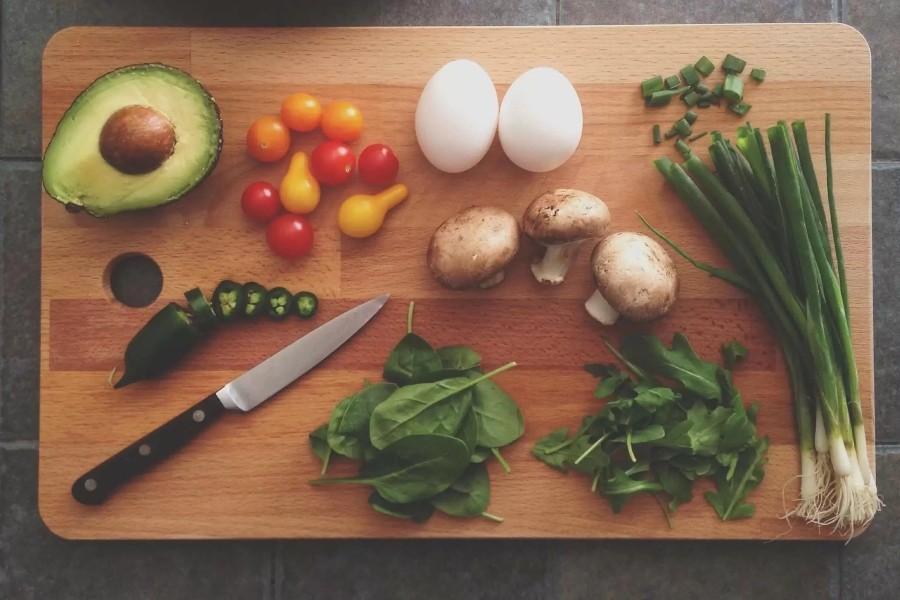
What Is The Keto Diet And How Does It Work?
Interview with Michela Vagnini (mBANT, ANP)
Michela studied at the College of Naturopathic Medicine in London and is a registered Nutritional Therapist and Reflexologist. Here, she answers our questions about the ketogenic diet (‘keto’ for short) and describes the many health benefits, from weight loss to improved cognitive function.
What is the ketogenic (or keto) diet?
Despite the recent hype, a ketogenic diet is not something new. In medicine, it has been used for almost 100 years to treat drug-resistant epilepsy, especially in children. A ketogenic diet primarily consists of high fats, moderate proteins, and very low carbohydrates. The dietary macronutrients are divided into approximately 65–75% fat, 15–25% protein and 5% to 10% carbohydrates. Specifically, in a 2000 kcal per day diet, carbohydrates amount up to 20 to 50 g per day.
In the absence of circulating blood sugar from food, we start breaking down stored fat into molecules called ketone bodies (the process is called ketosis). Once you reach ketosis, most cells will use ketone bodies to generate energy until we start eating carbohydrates again. The shift, from using circulating glucose to breaking down stored fat as a source of energy, usually happens over two to four days of eating fewer than 20 to 50 grams of carbohydrates per day.
Is the keto diet good for weight loss?
Yes, it is very effective for weight loss. When we eat very few foods that supply us with carbohydrates, we release less insulin. With lower insulin levels, the body doesn’t store extra energy in the form of fat for later use, and instead is able to reach into existing fat stores for energy.
This process will naturally reduce your appetite and stabilise your glycaemic level, targeting several key, underlying causes of weight gain — including hormonal imbalances, especially insulin resistance coupled with high blood sugar levels, and the cycle of restricting and ‘binging’ on empty calories due to hunger that so many dieters struggle with.

What are the other health benefits of the keto diet?
The ketogenic diet is not just about weight loss and reducing body fat. It’s a lifestyle that can give you the tools to upgrade your health in many significant ways, including:
- Balancing your metabolism
- Improving your exercise and physical performance
- Boosting your productivity and mental focus
- Increasing longevity by reducing age-related disease
- Increased insulin sensitivity
When you start a ketogenic diet and increase the amount of fat you eat, you will start feeling fuller for longer and produce more energy.
Can the keto diet improve cognitive function?
When we start ketosis, ketone bodies are used by the brain to generate adenosine triphosphate (ATP), energy. Although glucose remains the primary source of energy for the body when it’s present, ketones are actually a more efficient energy source than glucose and can reduce the number of destructive free radicals produced. And fewer free radicals means better protection for the brain — and the rest of the body — from oxidative stress, which negatively affects mental performance and brain ageing.
What would be a typical daily meal plan?
When starting a ketogenic diet, many people would also implement intermittent fasting as well.
As fats will keep you fuller for longer and reduce appetite, many people find it easy to skip breakfast and have an earlier lunch and dinner. By doing so you would stick to two meals a day with maybe a snack, like a fat bomb or shake in the afternoon if needed.

Lunch would be Greek salad with feta cheese, olives, cucumbers, olive oil and extra salad leaves to increase fibre content. If you feel extra hungry you could add an avocado, boiled egg or some smoked salmon or tinned tuna. Be careful not to have too much protein if you want to be in ketosis though. Courgetti is a quick and easy alternative to pasta.
Dinner is easily prepared with a plate full of non-starchy vegetables or salad, a small portion of meat or fish and some extra fats such as olive oil, chopped nuts, olives or avocado.
Choose vegetables that grow above the ground as they will have the least net carbs and more fibre.

Can you eat bread or cheese on a keto diet?
Most cheeses are low carb (check labels) and are a great way to add extra fats and proteins to a mixed salad, or they can be used in baked vegetables like stuffed courgette with grated cheese, or sauté mushrooms.
Bread is okay if it is keto bread, usually made with almond flour and eggs. Quick and easy to make, it is a life saver when you need a sandwich on the go. Otherwise grains are usually omitted on a keto diet. Personally I replace bread with vegetables, like ‘caulirice’ (cauliflower rice), konjac pasta, zoodles and keto bread/pizza. Cauliflower can also be used as a pizza base or as mash instead of potato!
Is the keto diet possible for vegetarians?
Yes, but they would need to monitor their blood ketone levels to check whether they are eating too many carbs from plant-based proteins like pulses. It does get a bit more complicated with vegans but there are some good websites that give meal ideas and recipes.
What are the long-term effects of the keto diet?
Once you become more keto adapted and lose fat mass and increase muscle mass, the amount of carbs you can eat in a day will increase, making it easier to follow a keto lifestyle.
Long term, you will be able to maintain a healthier body weight, see anti-ageing effects, have better focus and memory and much more energy. People notice that once they start a ketogenic lifestyle their sleep improves and, as we know, a healthy life depends on a good night's sleep!
Are there any side effects of the keto diet?
The most common side effect is the keto flu, a collection of symptoms caused by the body becoming ‘fat adapted’ which can feel similar to the flu. Some people may transition into ketosis with very few symptoms, but others might experience:
- Nausea
- Constipation
- Diarrhoea
- Headache
- Irritability
- Muscle cramps
- Dizziness
- Poor concentration
- Stomach ache
- Muscle soreness
- Difficulty sleeping
- Sugar cravings
These symptoms might last for a few days and disappear as you become keto adapted.
Are supplements recommended for the keto diet?
To make a ketogenic diet more effective and easier to follow, I would suggest using a shake to balance blood sugar levels and prevent cravings. In my experience, the most effective one is the Planet Paleo Keto C8 MCT Powder. The combination of proteins, healthy fats and the probiotic/enzyme blend really helps me wean off the carbs and sugars!
In ketosis it is important to stay well hydrated and promote a good gut flora, so I use a specific multivitamin and mineral with extra probiotics to reduce the chances of a keto flu and boost my gut microbiome. Natures Plus Source of Life Gold is a multivitamin that delivers a complete array of vitamins, minerals, ketogenic whole foods and ketosis-promoting benign microflora. KetoLiving Multi supports your whole body’s nutritional needs while helping your blood sugar control systems work the best.
I also add some powdered magnesium and greens to my bottle of water to keep my muscles relaxed and get a good amount of electrolytes to hydrate. My favourites are Natures Plus Ultra Juice Green Powder and Kalmassure Pink Lemonade Magnesium Powder.
How safe is the keto diet?
The ketogenic diet is generally safe for the majority of the population. A ketogenic diet is not suitable for type 1 diabetics, people suffering from eating disorders or any other severe health conditions or kidney impairments. Always consult your doctor if taking medications and have a pre-existing condition.
Is the keto diet safe for type 2 diabetics?
The ketogenic diet is generally considered safe for type 2 diabetics, but if taking insulin or medications, it is best to contact your doctor first and regularly monitor your blood glucose and ketones.
Do you have any other advice?
Approach the keto diet as a change in lifestyle, not just a temporary diet. Once you reach your goal you can be more flexible and maintain a healthy low-carb, high-fat diet.
Do not forget the importance of exercise and rest. You will struggle to go into ketosis if you are highly stressed or not sleeping well or enough. Practise regular de-stressing activities that you enjoy, have a good bedtime routine and enjoy your new healthy life!
Disclaimer
The products offered are not intended to diagnose, treat, cure, or prevent any illness or disease, or to replace the advice of a medical professional. Results are not guaranteed and may vary from individual to individual.



